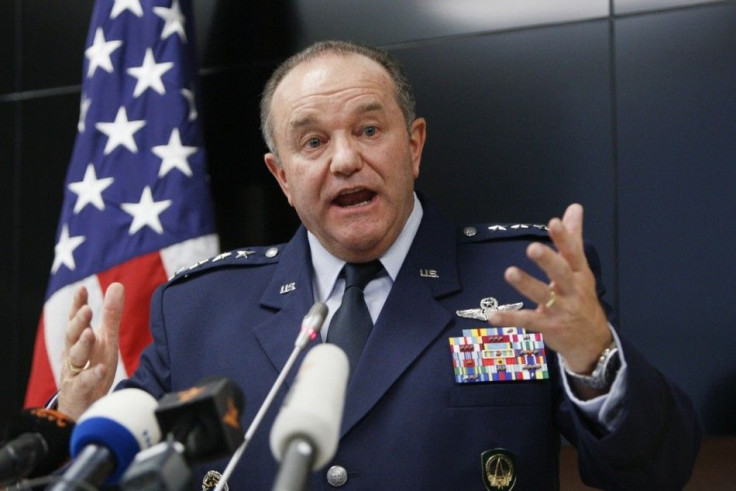Russia, NATO Point Fingers, Accuse Each Other Of Destabilising Europe; NATO Releases 2nd Fact Sheet

NATO has released a second fact sheet as it continued to spit barbs with Russia, with each blasting the other for Europe's current chaotic state.
Each claimed the other triggered the provocation that resulted to the slew of "threats and hostile actions" that started as far back more than 25 years. NATO's been accused of conducting military drills in Europe and in the Baltics, which the world's most powerful military alliance claimed was being done because of Russia's incursion into eastern Ukraine and its dreams of conquering the region. Douglas Lute, the U.S. ambassador to NATO, said the alliance's seeming increasing military activities were "defensive" of Russia's actions.
Russia is particularly sensitive to each and every NATO posturing, especially if these were being done in countries once part of the Soviet Union, Reuters said. Alexei Meshkov, Deputy Foreign Minister, told the news agency Interfax that Russia will not just sit down and watch NATO's show progress. He said Russia would take "every step" to protect its security.
But if one were to closely observe the scale of Russian activities in Crimea, "first in Crimea and now in southeastern Ukraine, it's quite evident that they are destabilizing," Lute told a news conference in Brussels. Meshkov said that despite the growing tensions, he believed it is still possible for Russia and NATO to actively work together. The Ukraine crisis has killed over 4,300 people.
Despite the deployment of planes capable of carrying nuclear weapons to the Baltic countries which he claimed "is an extremely negative reality," Meshkov said it would be best that Russia and NATO "not to fuel tensions." In the fact sheet, Russia had claimed NATO committed it would leave the Baltics and eastern Europe following the German reunification. But NATO, citing then Soviet premier Mikhail Gorbachev said "neither NATO nor Soviet leaders ever brought up the issue of NATO expansion."
To the claim of Russians that the Ukrainian government is illegitimate, NATO said Ukraine's current president was elected with a clear majority in a May 25 election. The Organization for Security and Co-Operation in Europe (OSCE) had described the activity as free and fair, the alliance added.
The fact sheet here. NATO released a similar fact-sheet in April.





















